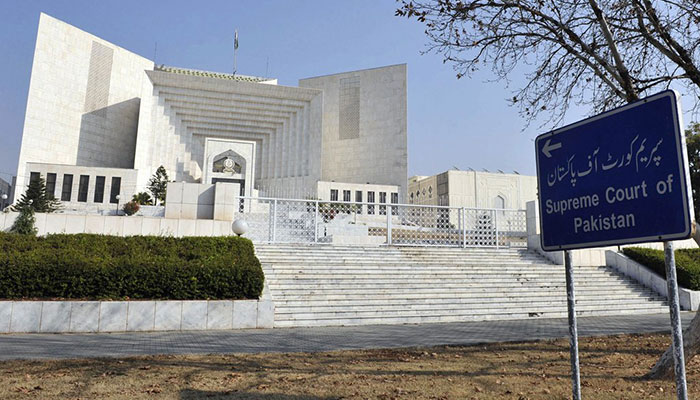Time for Parliament to lay down a clear law for appointment of judges
I would earnestly hope therefore that the decision to nominate the SHC chief justice as ‘ad-hoc judge’ be reversed
September 01, 2021

The judiciary is the guardian of rule of law, and that is why people have tremendous faith in it and a legitimate expectation that, when deciding its own affairs with regard to appointment of judges, the same legal principles will be applied which the courts have established while judging the legality of appointments made by other institutions. It is due to this, and for ensuring the independence of the judiciary, which is the foundation of democracy, that the power to appoint or remove judges is left ultimately with the judges themselves through the Judicial Commission of Pakistan (JCP) or the Supreme Judicial Council.
Whether this confidence in the JCP is justified has been tested in two recent majority decisions – one in which the JCP did not nominate the senior-most judge to fill the vacancy as a Supreme Court judge, and the second in which the chief justice of the Sindh High Court was required to act as ‘Supreme Court ad hoc judge’ without his consent. The question in everyone’s mind is whether, in making these decisions, the correct principles were applied?
Let me begin by saying that the nominated judge has exceptional abilities and certainly, in my view, deserves the appointment on merit. However, bar councils and lawyers’ associations have raised the point that according to the Al-Jehad judgement only the senior-most high court judge can be appointed, and majority JCP’s decision is unlawful.
Although it is true that this judgement does speak about seniority, this principle needs to be revisited. While seniority should be the “pre-dominant consideration”, it cannot be the only criterion. If, for example, a senior-most judge lacks the capacity, capability, acumen or aptitude to be appointed as Supreme Court judge or if there is any other consideration for bypassing him, for example, the need to have gender or minority representation in Supreme Court, then the JCP should be able to nominate a junior judge and bars should have no objection to it.
The criteria for appointment to the Supreme Court should be seniority-cum-fitness among others. What is required for the future is – and perhaps this aspect needs to be highlighted by the legal community – that the standards for appointment should be laid down, and whenever the JCP decides to nominate a junior judge, written reasons, which are acceptable on the touchstone of reasonableness and objectivity, be given by the JCP. It is only then that transparency will be ensured and the public satisfied. Otherwise, there will be an impression of ‘pick and choose’ and people will raise questions, doubting the decision.
As regards the issue for appointment of ‘ad hoc judge’, it has only added fuel to the unnecessary controversy. Unfortunately, I am unable to defend this decision under any principle. The Constitution (Article 182) is clear that a judge can be required to attend sittings of the Supreme Court as an ad-hoc judge provided consent is obtained. Since in this case, to the contrary, there is an express refusal (the Sindh High Court chief justice wrote letters, which were made public, refusing to take oath), the matter should have ended there.
A high court judge cannot be compelled in law to sit in the Supreme Court. This is why under the Constitution a judge cannot be removed for such refusal. It is only if a judge refuses to accept appointment as a permanent SC judge that he is deemed to have retired. In fact, even as a matter of principle, I have serious reservations on such ‘ad-hoc appointments’ per se because a temporary judge is not as ‘free’ or ‘independent’ as a permanent one. The Constitution also only allows a judge to sit in Supreme Court provisionally in very exceptional circumstances, while none exist in this case.
I am even more surprised that the Sindh High Court chief justice was required to take oath of office as an ‘ad-hoc judge’. When requiring a judge to attend the sittings of the Supreme Court, he is not ‘appointed’ as a judge of the Supreme Court, but continues to remain a high court judge and retires as such. He is only required temporarily to exercise the powers of a Supreme Court judge. There is, in my view, no question of taking any new oath as an ‘ad-hoc’ judge and the bars are rightly protesting it.
I have been asked a pertinent question in the media that if a judge is not deemed fit to be appointed on a permanent basis in the Supreme Court, then how can he be asked to exercise powers and jurisdiction of a Supreme Court judge on an ad-hoc basis. Again, no valid explanation has been given to this logical objection.
People want to see that in the matter of appointment of judges, the JCP applies the same principles of law as are applicable to others. The public impression is that majority JCP members, on one side, and minority JCP members and legal community on the other, are in confrontation on this matter. This would not bode well for the relationship between the judiciary and the bar, as both need each other. It is essential that such an avoidable controversy be de-escalated.
I would earnestly hope therefore that the decision to nominate the SHC chief justice as ‘ad-hoc judge’ be reversed. This will not be seen as succumbing to any pressure from the bars but rather as correcting a decision which apparently is unconstitutional. It would enhance the dignity of the judiciary and reinforce peoples’ faith in the institution. At the same time, bars’ role should be to insist JCP lay down a structured criteria for judges’ appointment and give, as well as publish, reasons in case they want to bypass seniority. The public consists of reasonable people and objective criteria given for judges’ appointment would be welcome.
I may add that there is clear and present pressure on Parliament to correct the procedure for judges’ appointment and bring it in line with international standards. I believe it is time for the legislature to play a wise role and lay down clear laws for judges’ appointment while also re-defining the role of the Parliamentary committee. This would be in accordance with public opinion. I, for one, being part of the Senate, will surely play my role in it.
This article originally appeared in the September 1 edition of The News. It can be accessed here.
The writer is a practising advocate of the Supreme Court, a current senator and chairman of the Senate Standing Committee on Law and Justice.
Twitter: syedalizafar1
Email: [email protected]
Originally published in The News











